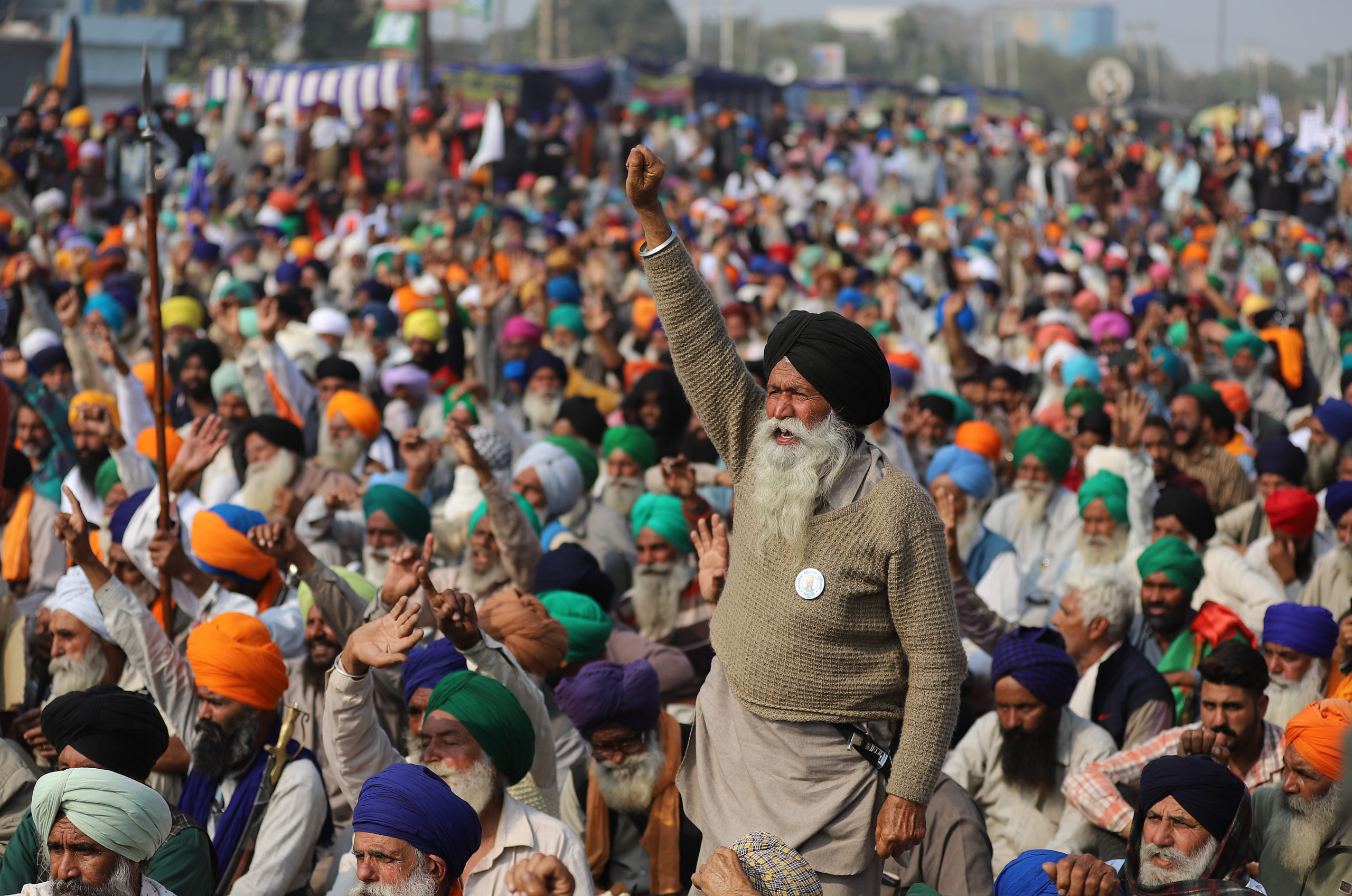Farmers’ protests: NHRC issues notice over disruption caused by protests against farm laws
The National Human Rights Commission has issued a notice to the three state governments and the national capital Delhi over allegations of adverse impact of the farmers’ protests on the industrial units and transportation. Details here.


Farmer leader Rakesh Tikait addressing the protestors. Photo: Amit Pandey
The National Human Rights Commission (NHRC) has today on September 14 issued notices to Delhi, Rajasthan, Haryana and Uttar Pradesh governments over the ‘adverse impact’ caused by the ongoing farmers’ protest on the industrial units and transportation.
The Commission has issued notices to the Chief Secretaries of Uttar Pradesh, Haryana, Rajasthan, NCT of Delhi, Director Generals of Police, UP, Haryana, Rajasthan and Commissioner of Police, Delhi calling upon them to submit their respective Action Taken Reports.
“The National Human Rights Commission, NHRC, India has received several complaints regarding the ongoing farmer’s protest. There are allegations of adverse impact on the industrial units, seriously effecting more than 9000 micro, medium, and large companies. Allegedly, transportation is also adversely impacted, causing the commuters, patients, physically challenged people and senior citizens to suffer due to the heavy congestion on roads,” stated the statement issued by the NHRC.
“There are also reports that people have to travel long distances to reach their destinations due to the ongoing farmers’ agitation and barricades have been put on the borders. There is further allegation that the inhabitants are not being allowed to move out of their houses due to the blockade of the passage,” it added.
The NHRC also pointed out that there is a breach of the COVID19 protocols by the agitating farmers at the protest site.
Since November last year, farmers from several states such as Punjab and Uttar Pradesh have been protesting at Singhu Border and Tikri Border of Delhi-Haryana and Ghazipur border of Delhi-Uttar Pradesh. They demand repealing the three new agri laws.

Also Read: Will the new agri laws benefit or harm farmers?
The commission has also stated that since the agitation involves the issue of human rights, the right to agitate in a peaceful manner is also to be respected.
Meanwhile, the Delhi School of Social Work, University of Delhi has been requested to depute teams to conduct a survey and submit the report assessing the disruption of livelihood, lives of people, impact on the aged and infirm persons due to protracted agitation by farmers.
The Institute of Economic Growth (IEG) is also requested to examine the adverse impact of the farmers’ agitation on industrial and commercial activities/production and disruption of transport services on commercial and normal consumers including inconvenience and additional expenditure. The Commission has asked IEG to submit a comprehensive report in the matter by October 10.
Besides, the National Disaster Management Authority, Ministry of Home Affairs and Ministry of Health, have been asked to submit reports with respect to the adverse impact of farmers agitation on various aspects and observance of COVID19 Protocols at the protests sites.
The Commission also highlighted the case of alleged gang rape of human rights activist at the protest site. “No report was received from the DM, Jhajjar regarding the payment of compensation to the NOK [next of kin] of the deceased. A fresh reminder was issued to the DM, Jhajjar, to file the report by 10th October, 2021,” it stated.

